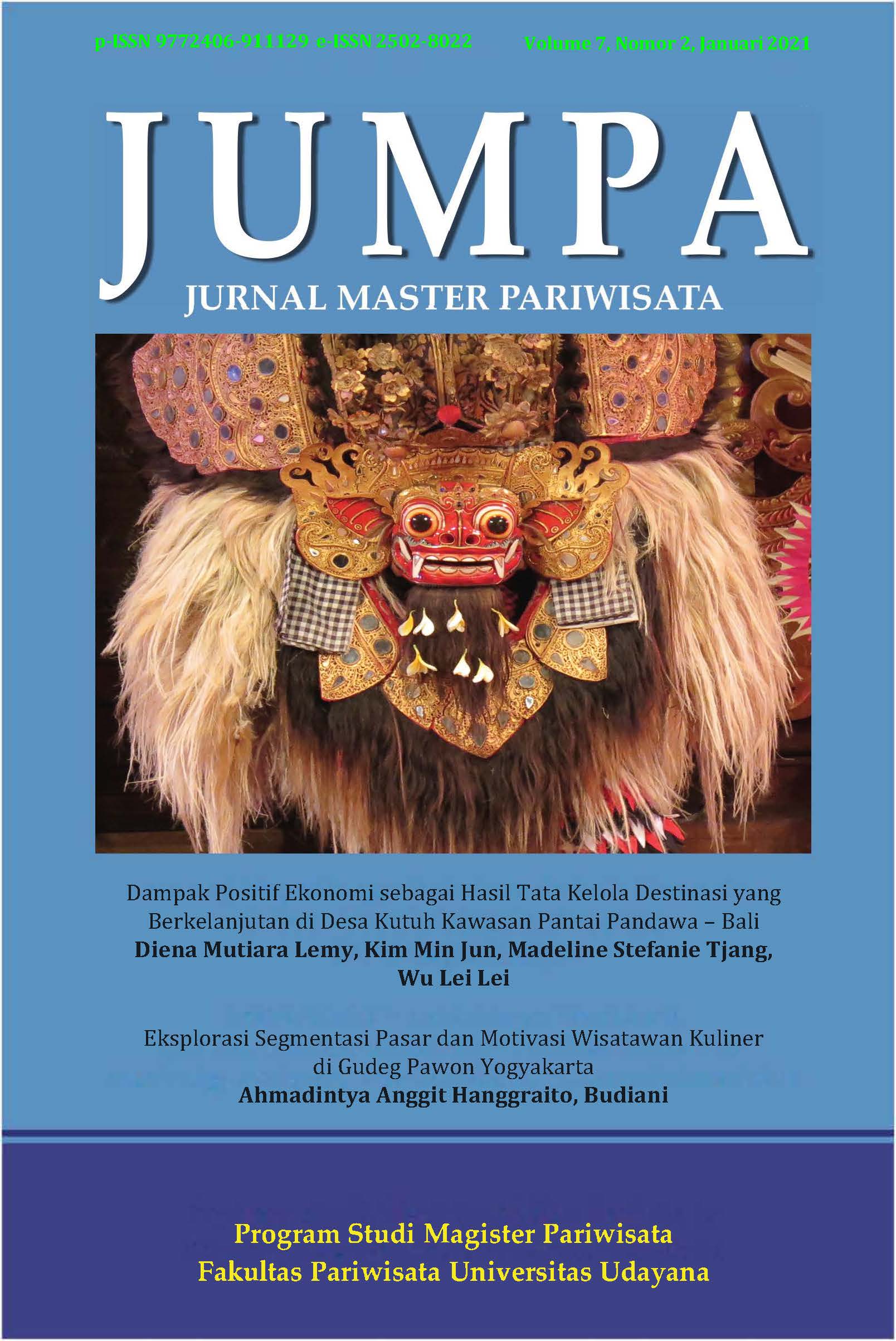Perkembangan dan Interaksi Modal Ekspatriat Berbasis Tourism Area Life Cycle di Ubud
Abstract
The expatriates in Ubud have played an important role in the development of Balinese tourism since the early 20th century and their influence continues today. This study aims to examine the development, dynamics and interactions of capitals between expatriates, society and local elites by adapting the Tourism Area Life Cycle (TALC) model, combined with Bourdieu’s capital theory and Homan’s social exchange theory as an analytical tool. This qualitative research uses critical phenomenological analysis based on action research, with data collection methods in the form of participatory observation, in-depth interviews and documentation studies, with research locus in Ubud and its surroundings. This research is intended to assist stakeholders, practitioners and tourism academics in uncovering the development and interaction of expatriate capital that occurs in the realm of Ubud based on the life cycle of tourism destinations. This research reveals that by adapting the TALC model, currently the development of Ubud tourism is at a consolidation stage, and the interaction of capitals (economic capital, cultural capital, symbolic capital and social capital) is becoming tighter and more complex. In all these processes, the symbiosis of mutualism is more dominant, although in some cases there are still practices of marginalization and hegemony which are measured based on ownership of capital.
Keywords: expatriate, development, capital, tourism area life cycle














